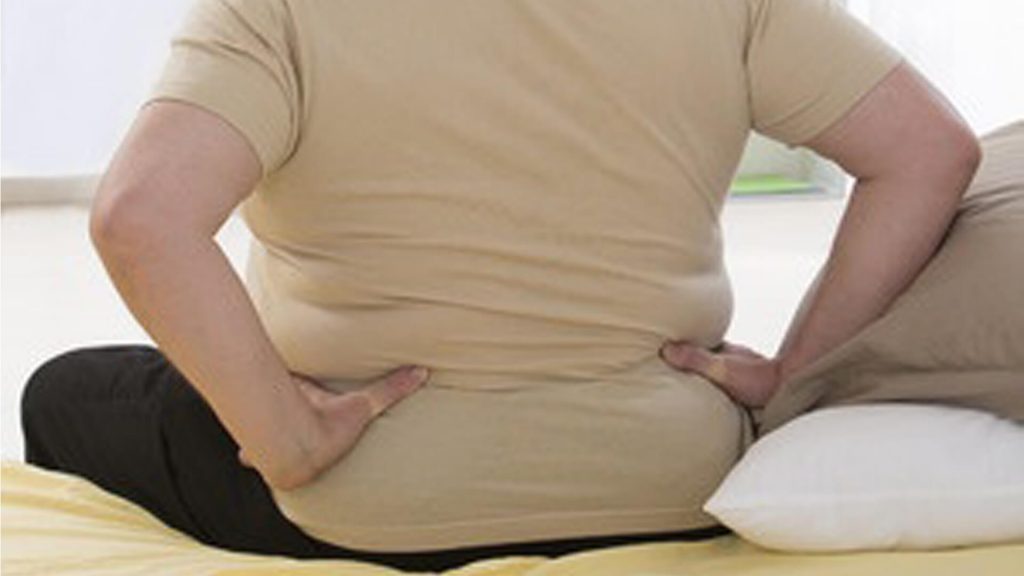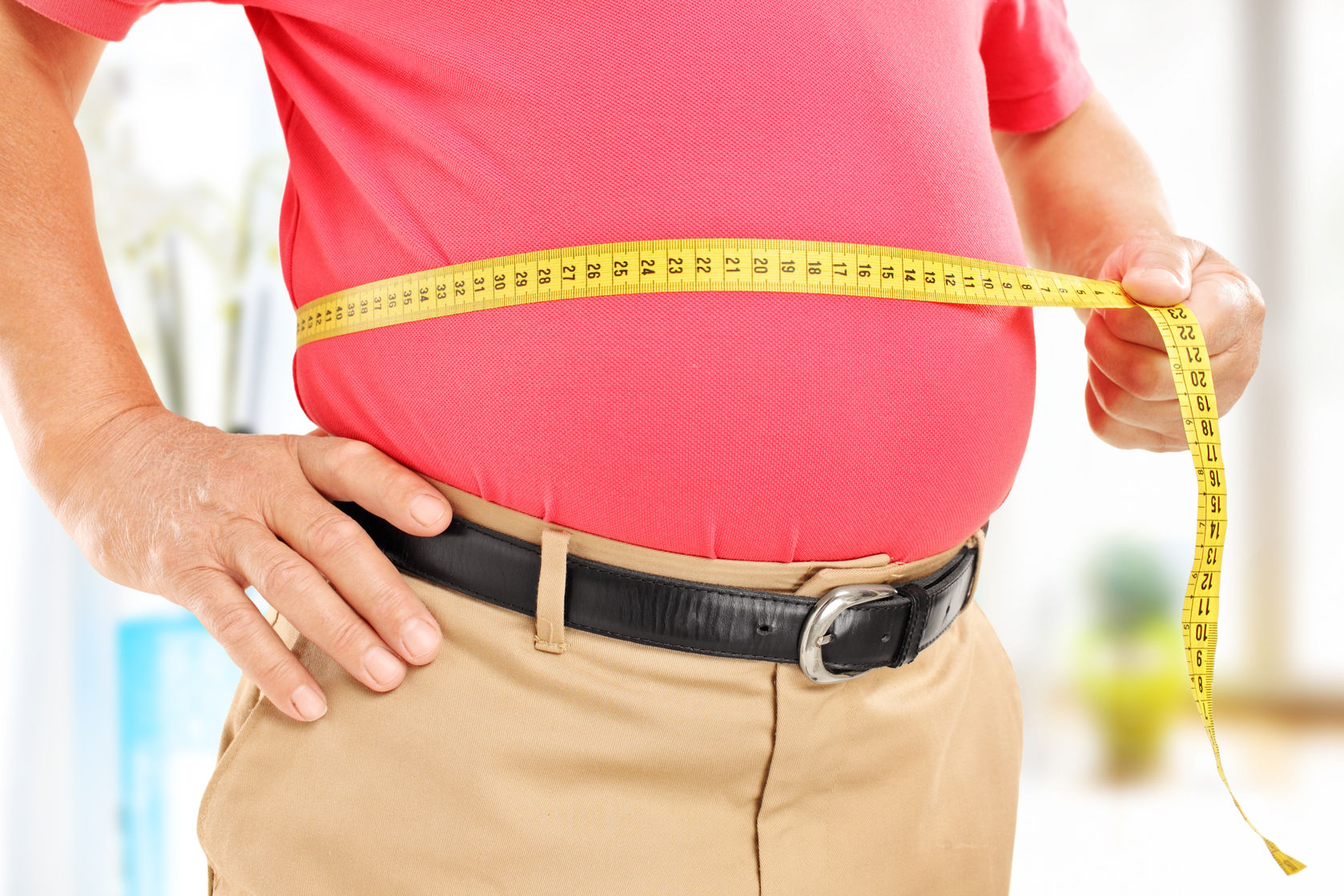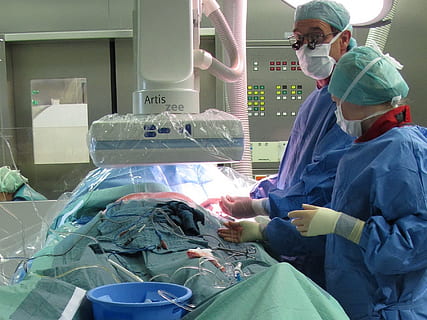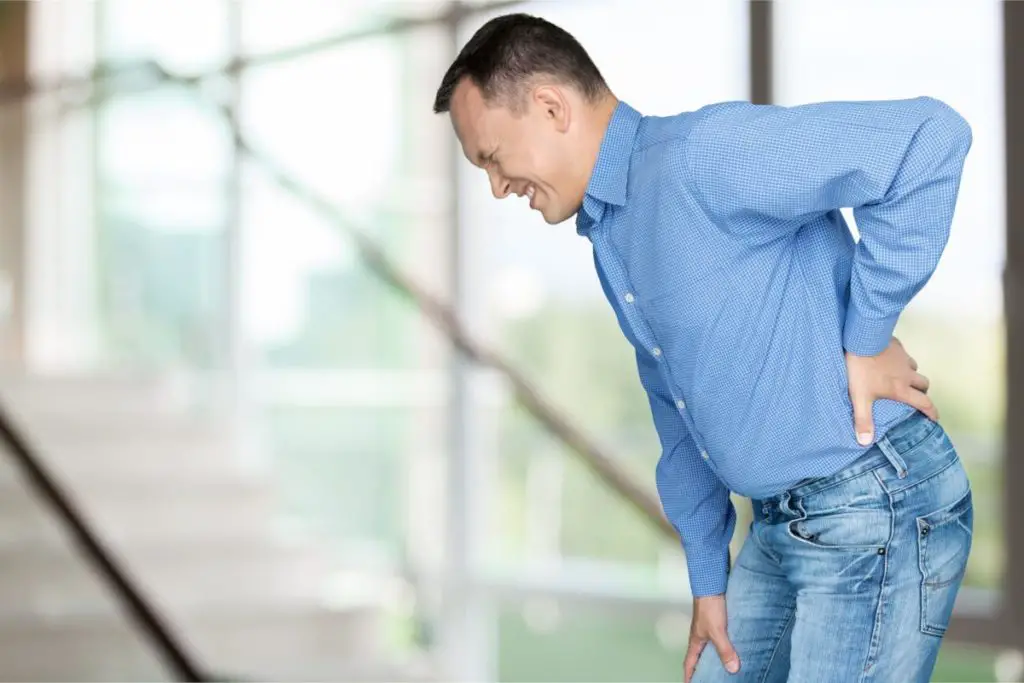Article reviewed and approved by Dr. Ibtissama Boukas, physician specializing in family medicine
Obesity is often referred to as the “evil of the century”. Ironically, we use the same qualifier to describe back pain.
What if the two were linked? Could your overweight (more or less pronounced) explain your back pain? If so, what exactly can be done?
This popular article will discuss the link between overweight, obesity and back pain. As a bonus, we offer you a solution that could help you lose weight while relieving your lower back pain.
Definition of overweight (and obesity)
Before any relationship between back pain and obesity can be established, it is necessary to familiarize yourself with the concepts of overweight and obesity.
Normally, the "normal" fat mass in men represents between 10 and 15% of body weight, while it is 20 to 25% of body weight in women. In the presence of overweight or obesity, there is an abnormal or excessive accumulation of body fat. This excessive accumulation poses a health risk.
How do you know if you are overweight or obese?
Overweight and obesity are defined from the body mass index (or BMI). BMI is calculated by dividing a person's weight by height squared.
Your BMI = Your weight / (Your height in cm)²
If the BMI is:
- < 18,5 kg/m², this is underweight;
- = or > 18,5 and < 25 kg/m², corpulence is normal;
- = or > 25 and < 30 kg/m², there is a overweight ;
- = or > 30 kg/m², this isobesity.
What is your BMI?
Anatomical and physiological changes related to overweight
Being obese has consequences on several systems of the human body. Let's take a look at how being overweight can affect your health, your vitality, and your quality of life:
The nervous system
Being overweight or obese increases the risk of having a stroke. Obese people often have low self-esteem, which can lead to depression.
Respiratory system
If there is excess fat around the neck area, this can affect the circulatory pathways and cause sleep apnea problems in particular. Some people stop breathing altogether for a period of time during the night in the presence of sleep apnea.
Digestive system
Obesity increases the chances of having gastroesophageal reflux disease (GERD), which is the backing up of some of the stomach contents into the esophagus.
Being overweight also increases the chances of developing gallstones, a condition that sometimes requires surgery.
Finally, the accumulation of fat can occur in the liver, which can sometimes lead to liver failure.
Cardiovascular system
Since the heart has to work harder to pump blood in the presence of obesity, it is not uncommon to observe an increase in blood pressure. As hypertension is the main cause of cerebrovascular accident (CVA), this places this clientele particularly at risk.
Obesity creates an increase in the body's resistance to insulin. As a reminder, the role of insulin is to transport sugar from the blood to the cells to be used as energy. Insulin resistance can therefore lead to conditions like type 2 diabetes where blood sugar levels are too high.
Finally, the accumulation of fat in the vessels (associated with hypertension, high cholesterol and high blood sugar) increases the risk of heart attack.
Reproductive system
In obese women, it is more difficult to get pregnant. Similarly, the risk of complications during pregnancy is increased in the presence of excess weight.
Integumentary system (skin)
Skin rashes are often observed at the folds caused by excess fat. A condition named "Acanthosis Nigricanscan occur, where areas of skin become darker, thicker, rougher and drier.
Link between obesity and back pain?
What about back pain? It is well known that obesity affects several systems of the human body, but what is the link between back pain and being overweight?
A priori, one can imagine that the relationship between obesity and back pain is directly proportional. Indeed, there is an indisputable and statistically proven relationship between excess weight and low back pain.
On the other hand, it is difficult to attribute back pain to the presence of obesity alone. Indeed, anatomical changes (such as a Scoliosis, a degeneration ou herniated disc, osteoarthritis, etc.) are not enough to explain lower back pain. Rather, it is a combination of physical factors - and even psychological– which can explain the back pain.
Now, how can excess weight manifest itself in the form of lower back pain? Here are 5 potential reasons (some will probably surprise you!):
Joint overload
This is the most intuitive cause. Being overweight alters certain bodily factors such as the center of gravity, posture and curvature of the back.
Thus, when you are overweight, this can increase the stress on the joints. An increase in joint stress can therefore manifest itself in the form of pain (such as middle back, lower back, knees, etc.).
However, be careful not to generalize. Not all obese people have back pain. Thus, if the weight gain has been over a long period, it is possible that the body has adapted to this progressive overload. In this case, the pain is either less significant or altogether absent.
Lower tolerance to physical activity
Although eating habits have a lot to do with it, overweight people are generally not as active as those with a "healthy" weight. Similarly, cardiovascular and physical activities are generally less well tolerated in this population.
When we know that the inactivity is one of the main causes of back pain, it is easy to understand that we are more at risk when we are overweight. Here's why obesity and back pain are (indirectly) connected in this case.
Poorer quality of sleep
Sleep apnea is present between 40 and 70% in the obese population. This causes in particular an alteration of the respiratory pattern, as well as a disturbance of the sleep cycle (sometimes even insomnia!).
On the one hand, the breathing is often disturbed in people with back pain. A poor respiratory pattern affects optimal oxygenation and circulation, and could increase back pain.
On the other hand, the non-restorative sleep prevents optimal healing of the body, which directly impacts back pain.
We therefore better understand why being overweight, due to its high prevalence of sleep apnea, can have a role to play in back pain.
Affects social activities
It's unfortunate, but obesity often affects quality of life. Many people are ashamed of eating in public or taking part in social activities. Worse still, some are the object of ridicule and discrimination.
In this light, it is easy (and sad!) to observe that obese people are more at risk to have depression.
Unfortunately, back pain is also linked to depression. Whether thesocial isolation or the reduction of activities, some people fall into a vicious circle that distances them from their loved ones, and thereby increases their pain.
In short, obesity, like low back pain, is influenced by physical factors – but also psychological ones. Emotional issues can not only cause “binge eating” but also increase back pain.
Affects post-surgery recovery
Although we try toavoid the operation at all costs after back pain, it sometimes happens that it is absolutely necessary.
In the presence of obesity, it sometimes happens that the operation is delayed – or even downright impossible – because of the cardiovascular risks that it presents, in particular due to the anesthesia.
Similarly, post-surgery recovery is often more difficult if you are overweight. The risk of complications is higher, mobility is often more restricted, getting up for the first time is more difficult, etc.
What do the scientific studies say?
Here is a series of results from scientific studies showing a relationship between overweight and back pain:
- People with a "healthy" weight are the least at risk of developing lower back pain. Overweight people are at moderate risk, and obese people have the highest risk.¹
- A high BMI, combined with a high fat percentage, would be directly related to the prevalence and risk of low back pain.²
- Obesity increases the risk of low back pain and disc disease (problems with intervertebral discs), but would not be directly related to the degeneracy of the spine, or neck pain (neck pain).³
Overweight/obesity and back pain: What to do?
If you have back pain, several solutions are available to you to relieve your symptoms. You may have already consulted your doctor, visited a physio or osteo, done activities or tried to improve your postural habits.
On the other hand, an often underestimated solution is weight loss. If you are storing excess weight, losing weight could lead to a reduction in symptoms. Now, what is the best way to lose weight when suffering from back pain?
Conclusion
It's no longer a secret that obesity affects almost every system in the human body. Among other things, there is a clear correlation between obesity and back pain. On the other hand, it is difficult to determine whether being overweight is the cause of the pain, or rather a contributing factor.
Anyway, the relationship is indeed present, and losing extra pounds is often an effective solution to reduce back pain.
Good recovery!










